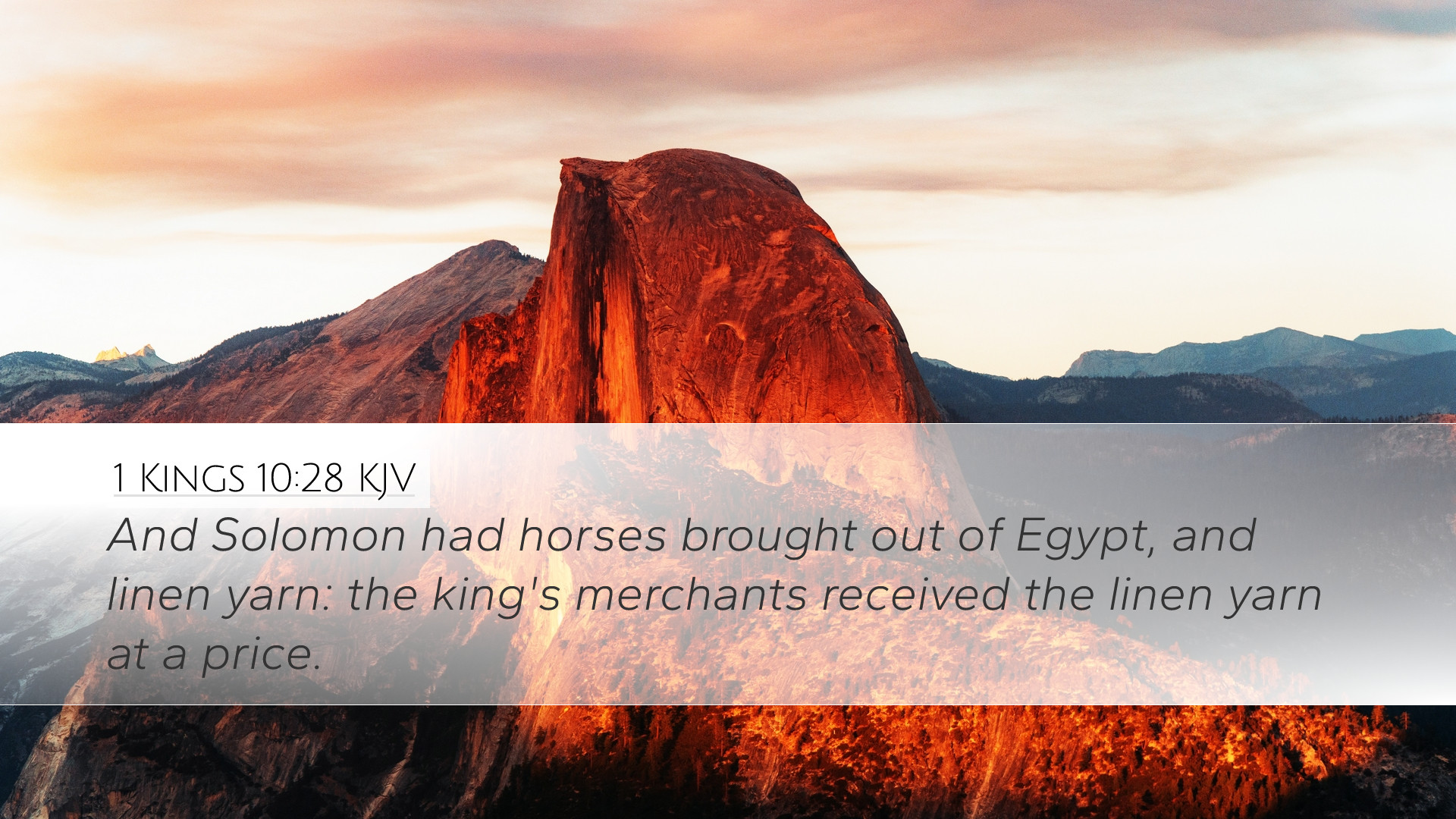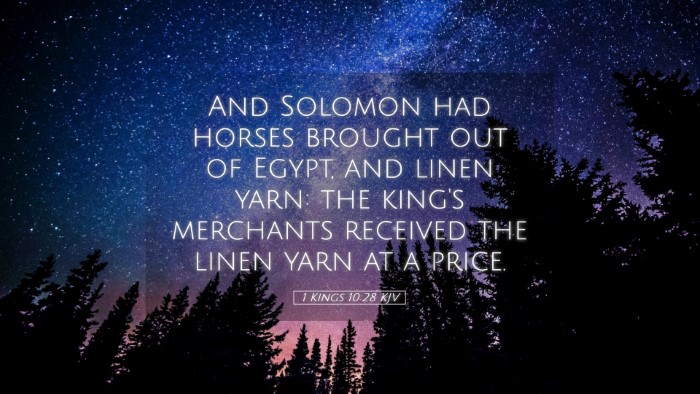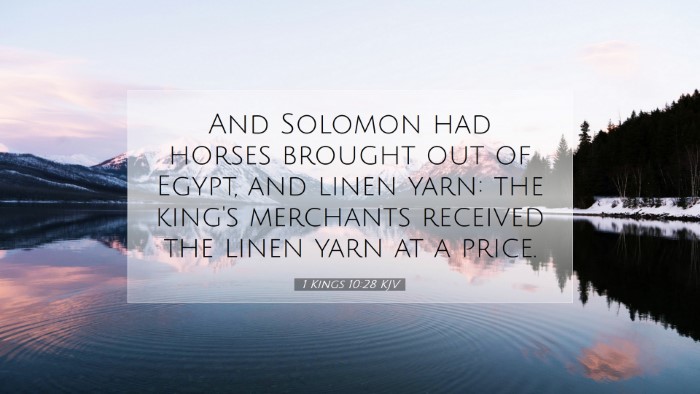Commentary on 1 Kings 10:28
Bible Verse: 1 Kings 10:28
"And Solomon had horses brought out of Egypt, and linen yarn: the king's merchants received the linen yarn at a price."
Introduction
The verse encapsulates a moment in the reign of King Solomon, illustrating his wealth and the extent of his trade relationships, particularly with Egypt. This commentary will delve into its historical, theological, and practical implications, drawing from various public domain commentaries to provide a comprehensive understanding.
Historical Context
1 Kings 10:28 occurs during the zenith of Solomon's kingdom. His reign was marked by prosperity, the establishment of extensive trade routes, and diplomatic relationships, especially notable with Egypt, a neighboring power known for its rich resources and skilled craftsmanship.
According to Matthew Henry, this trade initiative was reflective of Solomon's wisdom and foresight in securing materials necessary for his extensive building projects, including the temple and his palace. Through the acquisition of horses and linen, Solomon not only demonstrated his affluence but also his strategic capacity to cultivate alliances that would secure resources for his realm.
Theological Insights
This verse can also be evaluated for its theological underpinnings. Albert Barnes emphasizes that Solomon’s active trade with Egypt, while enhancing his wealth, also reflects the duality of human nature concerning reliance on worldly means rather than divine provision. The procurement of horses from Egypt could symbolize a temptation to trust in military might rather than God’s guidance and supremacy.
Adam Clarke adds that Solomon’s affinity for horses from Egypt has implications for Israel’s identity. It was contrary to the law which advised against acquiring horses from Egypt, thus pointing to a gradual shift in Israel’s dependence on God for protection. The discussion promotes a broader contemplation on how believers might also inadvertently align with worldly systems.
Commerce and Wealth
The detailed mention of Solomon's merchants receiving linen yarn at a price suggests the sophistication of the trading economy during this era. Linen was not merely a commodity but a highly valued fabric, often associated with priestly garments and royal attire. This point is crucial for understanding the intersection between commerce and religious life in ancient Israel.
Commentators like Matthew Henry observe how the flourishing trade under Solomon may have contributed to the overall well-being and economic stability of the nation. This wealth allowed for not just the construction of grand structures but also served to enhance Israel’s position among neighboring nations.
Moreover, the intricate details about the merchants and the pricing of goods serve as a reminder of the diligence and planning that underpin success in governance and enterprise. Such diligence is often echoed in scripture, where faithfulness in small matters leads to greater responsibilities.
Practical Application
For modern readers, especially pastors and theologians, the lessons from 1 Kings 10:28 are manifold. The interplay of international trade, reliance on God, and responsible leadership can lead to valuable discussions regarding contemporary Christian stewardship and engagement in the marketplace.
The following practical applications emerge:
- Stewardship: Solomon’s effective resource management highlights the biblical principle of stewardship. Leaders and individuals alike are called to wisely use the resources at their disposal.
- Balance of Trust: The verse prompts reflection on the tension between relying on earthly means and divine guidance, encouraging believers to seek God's wisdom in their decisions.
- Community Engagement: Solomon’s activities demonstrate the importance of engaging with the broader world, providing opportunities for Christians to consider their role in today’s global marketplace.
- Historical Awareness: Understanding the historical and cultural context fosters a deeper appreciation for Scripture and its applications in various contexts.
Conclusion
1 Kings 10:28 serves as a microcosm of the broader themes present in Solomon’s reign: prosperity, the complexities of power, and the challenge of fidelity to God's commands. By examining this verse through the insights of Matthew Henry, Albert Barnes, and Adam Clarke, we uncover profound truths about commerce, reliance on God, and the responsibilities of leadership.
As scholars, pastors, and students engage with this text, they are encouraged to draw from its lessons to inform their theological understanding and practical living, ensuring that, while they navigate worldly affairs, their hearts remain anchored in faith and dependence on God's eternal wisdom.


